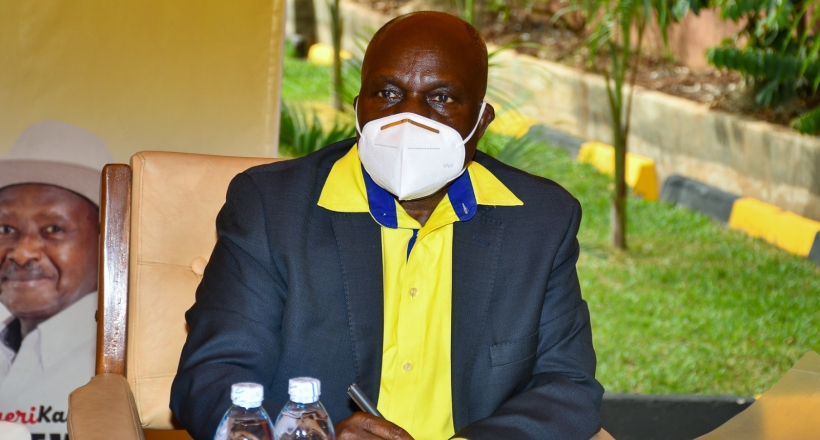
Seasoned politician and National Resistance Movement (NRM) Central Executive Committee (CEC) member, Dr Crispus Kiyonga has said that it is important for every country to construct a political system that serves the common good of its people.
He said that Uganda as a sovereign state has a constitution that guides its governance needs not to take lectures from other countries.
“As a country, the constitution is our menu from where we choose what will guide us. It is premised on the national interest and objectives. That is why we even had a referendum in 2000 and 2005 to decide the political system people wanted,” Kiyonga said.
Kiyonga was on Thursday delivering a lecture at the NRM secretariat, themed “From the movement system to multi-party politics: implications for political party building”
Kiyonga, the former Chief Political Commissar noted that Ugandans were wise not to copy and paste the western system of governance, saying that, “UK and USA have systems that befit them and therefore, each country using its objectives and history should choose a political system that favours it. That's why for Uganda we went for movement system and later multi-party.”
He also said that the constitution in article 70 defines the movement system as broad-based and non-partisan, adding that, the leadership was based on merit rather than the cover of a political party.
“The Movement Political system provided an institutional framework that enabled everyone to contribute towards National Development. Under the movement system, there was the National Conference, Central Executive Committee and committees from national to lower local councils. The leadership was based on merit rather than divisive political parties,” Kiyonga said.
“As a country,” he said, “We realized that movement system was the befitting system then, but some people started demanding for a multi-party system. Since NRM was very good at listening to people’s interests. We put it into consideration.”
The former Uganda’s ambassador to the People’s Republic of China, also said that the agitators for the multi-party system were members of the civil society organizations, members of the academia and some senior NRM cadres also joined the media to demand the change of political system.
“When it boiled up,” Kiyonga said, “the president called for a meeting in Kyankwanzi where a committee was constituted. The Committee worked day and night but it failed to find a consensus. After the report that didn't give a solution, the president gave an analysis of the political situation at the time and he allowed the multi-party system,” he noted.
Kiyonga said that following the resolution to change from a movement system to a multiparty system, the parliament constituted a national consultative forum to guide the political parties and political organizations.
“Multi-party system provided that the party formed must be of a national character should be inclusive and leaders must be elected by the citizens. The consultative forum provided peer supervision and a common platform to share views and guide one another,” he added.
Kiyonga stressed that to be a political party you have to register and have a constitution. He also noted that parties must have ideologies to guide them in fulfilling their missions and must also look at financing, whether donation or otherwise. Organization ethics must be ensured to monitor the implementation of the programs.”
He however explained that with the multi-party system the endpoint should be the improvement of people’s welfare.
The NRM party Secretary-General Mr Richard Todwong while giving closing remarks noted that the country was misled about the separation of powers when other countries didn't do so.
But he said that Political parties are good since they present alternative thinking. “If all political parties think the same, then there's no need for a multi-party system,” he said.
Todwong referred to the NRM party's ideology as more superior to the reason they are elected to lead the country other than other parties.
“As a party, we are planning from the bottom upwards. At every level we have structures. From village to national level, we are building strong cadres that can outlive all of us,” Todwong said.
“We need to do a lot like a party to gain much support from the population. We are responsible for most problems the party faces. We need cadres who are well-grounded ideologically like what the communist party of China does to its presumed cadres.
These clinics are yet to be introduced to the universities and sub-regions for people to benefit.”

